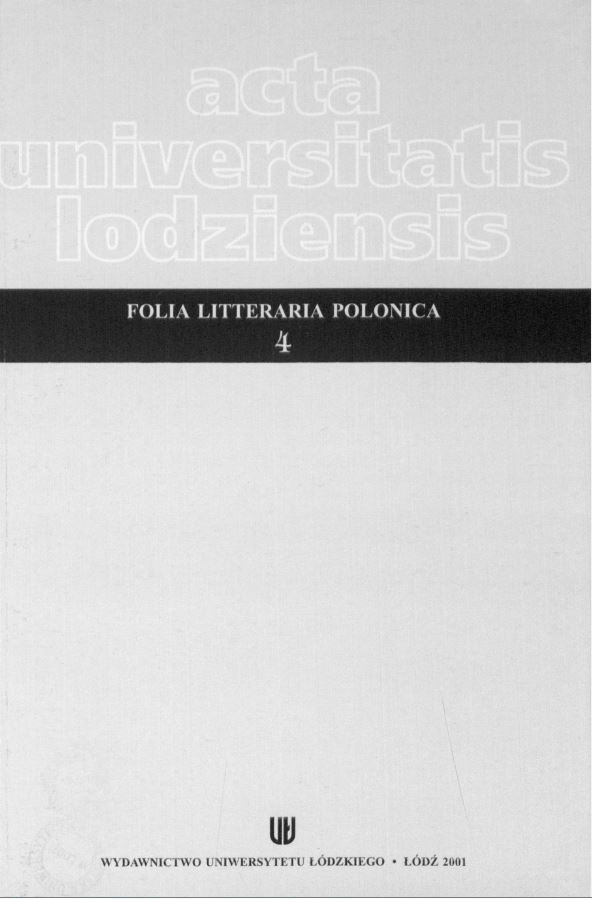The main motives of Gustaw Herling-Grudziński’s short stories
DOI:
https://doi.org/10.18778/1505-9057.04.13Abstract
Herling-Grudziński suggests reading his short stories as a part of his Diary Written in Night. Nevertheless, Herling’s short stories may reveal their philosophical and artistic dimension without this interlextual dependency. Such an opportunity is offered by pointing out the main motives of Herling’s prose works. The writter frequently makes use of specific methods of creating the plot, scenery and characters.
The typical first-person short story by Herling starts with a narrator’s journey, which turns into solving a mistery of a main character. That human existence is constantly crushed by undiserved suffering. The action usually takes place in a symbolic scenery (an island, gloomy tower or mansion, abandoned house). The poetics of space indicates universal significance: phisical landscape is affected by human lonelyness, suffering or unfulfilled hopes. These experiences usually lead Herling’s hero to death, after which his shelter (or the place of existential banishment) finally gets ruinned.
The narrator is not in possesion of sufficient knowledge about the tragedy. He gains necessary details from accidental informants or letters, diary notes left by the protagonist. This motif gives the reader a dual perspective onto the action.
Downloads
Downloads
Published
How to Cite
Issue
Section
License

This work is licensed under a Creative Commons Attribution-NonCommercial-NoDerivatives 4.0 International License.











